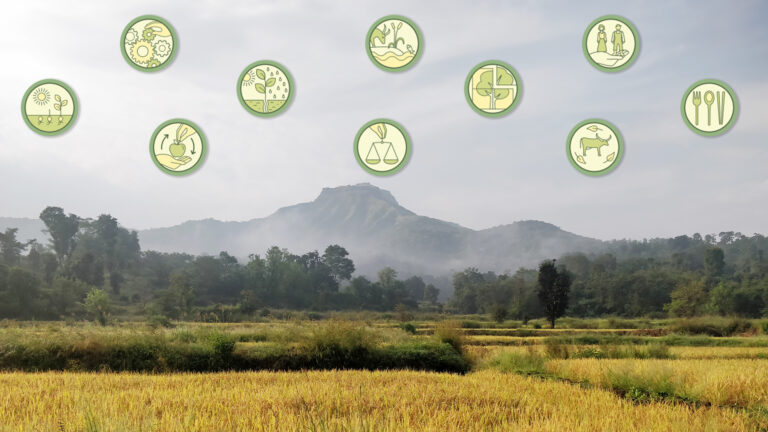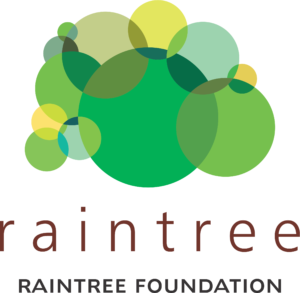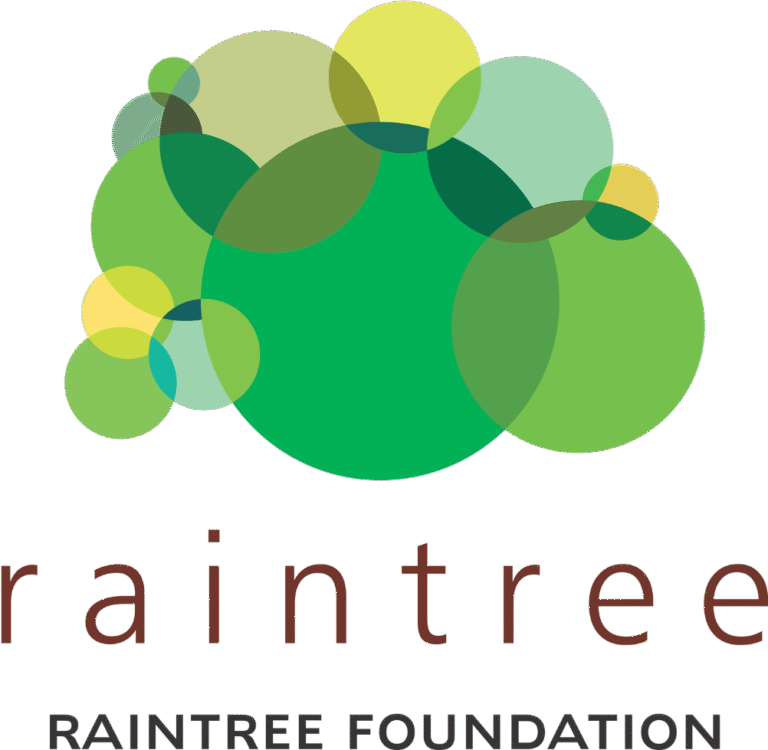Knowledge Centre
October 2024
Can an Agroecological Approach to Food Production Harness India’s Demographic Dividend?

The Changing Nature of Jobs
By 2030, the share of India’s working-age population will be almost 68%, which means to capitalize on this demographic potential, India must generate productive and gainful employment for more than a billion people. Herein lies the conundrum. According to the annual Periodic Labour Force Surveys (PLFS) from 2017-2022, agriculture continues to employ over 50% of the country’s working population while India’s manufacturing growth rate remains stagnated at under 15%, failing to absorb the surplus labour available.
Notably, incomes from cultivation decreased from 48% to 38%, while wage labour and livestock incomes came to dominate rural earnings. Will a conscientious shift towards adopting an agroecological approach to food production systems help address the job problem while ensuring the dignity of labour and food and nutritional security to India?
Agriculture Remains Economically Unviable for the Youth
Agriculture in India remains economically unviable and socially unattractive to the youth. The lack of dignity associated with agricultural labor, coupled with the precariousness of rural incomes, has led many young people to migrate to urban centers in search of employment, often ending up in informal jobs with low wages and poor working conditions. This is primarily rooted in the Green Revolution, land fragmentation, and the rising indebtedness of agricultural households.
The Green Revolution of the 1970s brought a systemic transformation to Indian agriculture, increasing incomes and achieving food self-sufficiency by boosting production while promoting water-intensive crops like rice and wheat, and the widespread use of fertilizers and pesticides.
However, as yields dropped, farmers increasingly relied on chemical inputs, driving up cultivation costs. This overdependence not only eroded farm profitability but also exacerbated soil salinity, land degradation, over-extraction of groundwater and unequal distribution of surface water resources. By 2015-16, small and marginal holdings (0.00-2.00 ha) constituted 86% of total landholdings, with an average size of 1.08 ha. Meanwhile, the debt-to-asset ratio of the average farming household surged by 630% between 1992 and 2015, underscoring the economic distress within the sector.
Agroecology: A Path Forward
Agroecology offers a compelling alternative to the current agricultural model focusing on indigenous knowledge systems about soil, plants and biodiversity while integrating innovative practices with modern technologies. It promotes farming practices that work in harmony with the local natural and socio-economic systems for ensuring food sovereignty.
Such an approach has proven to be resilient when coping with climatic uncertainties and disturbances such as droughts. An agroecological design and management strategy will involve improving soil biodiversity, crop diversification, integrated pest management, cover cropping, sustainable use of local resources and reduced dependence on external chemical inputs to optimize the functioning of the local ecosystem for production.
Women’s Contribution to India’s Agroecosystems
Agroecological approaches value the role of women as custodians of indigenous knowledge systems. It recognizes that women’s economic sustenance, livelihood and nutritional needs are directly linked to agroecosystems. Herein lies the opportunity to translate the agroecological approach into a basket of services leveraging technology and innovative practices, thus revitalizing agriculture through sustainable, dignified employment for the youth and women.
For example, take the case of waste from agricultural produce and horticultural crops, such as banana leaves, coconut husks, rice husks, jamun seeds and jackfruit skin. Each of these has utility and may be repurposed for livestock feed, manure, refined oil or flour – ensuring circularity within the local economy. Similarly, guarantee buybacks and post-harvest solutions for non-pesticide products through institutional arrangements also have untapped potential to generate local jobs for the youth and women.
At the Raintree Foundation, we aim to support smallholder farmers transition to agroecological practices to not only revitalize agricultural lands but also restore dignity to agricultural labor. By providing training, resources, and market linkages to smallholder farmers, we are working to build resilient farming communities that are economically viable and environmentally sustainable. Our programs emphasize the role of women and youth, recognizing that any solution to India’s agricultural crisis must be inclusive and participatory.
We also understood very early on that women’s livelihoods and sustenance are directly linked to landscapes for their role as economic agents of the households whether as collectors of fuelwood, fodder and water or towards food security and nutrition for reproduction of the household unit. Any form of environmental degradation then is not merely biophysical but also gendered.
India’s rural economy is heavily dependent on women’s labor. The PLFS 2022-23 data shows that 74% of the female workforce in rural areas is engaged in agriculture and allied activities. Yet, women’s contribution remains undervalued and often unpaid. They are largely confined to marginal and informal work, without access to adequate resources, training, or rights over land. By strengthening women-led local institutions and integrating them with a local service-based economy that promotes agroecology, we hope to address these disparities not just for gender equity but for achieving broader economic and food security objectives.
Thus, by embracing an agroecological approach in our landscapes, we can create a more sustainable and equitable agricultural system that generates dignified, gainful employment for millions, particularly in rural areas. This is crucial for addressing both India’s job crisis and its food security challenges.
Karishma Bhushan Shelar
Senior Program Manager – Enterprise (Agriculture), Raintree Foundation
To subscribe to our Newsletter



